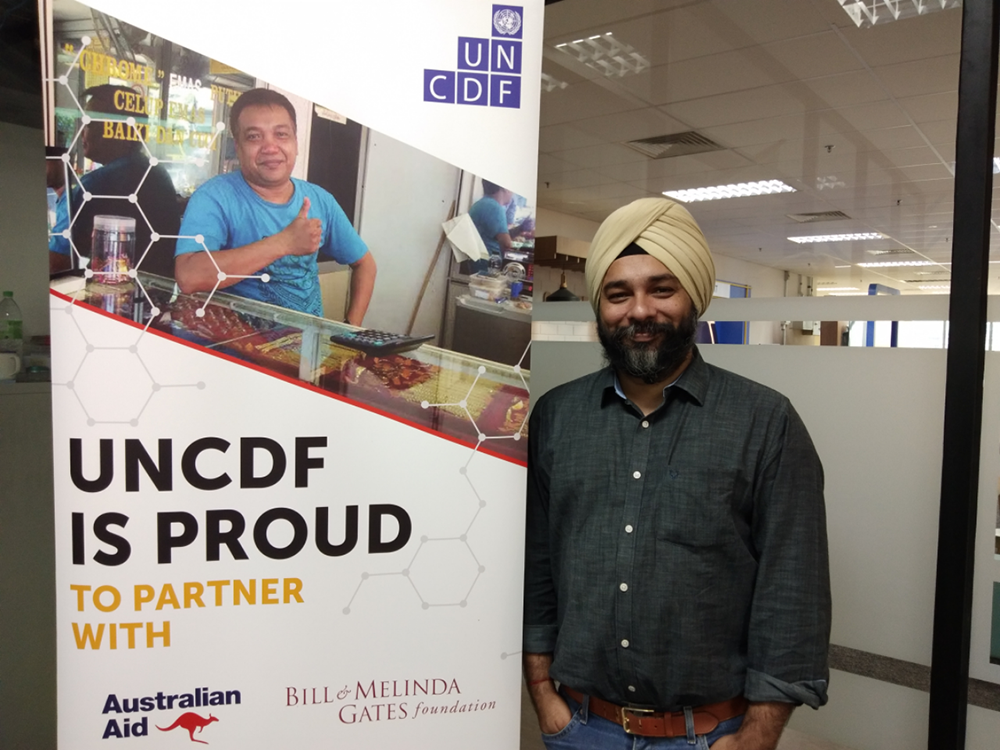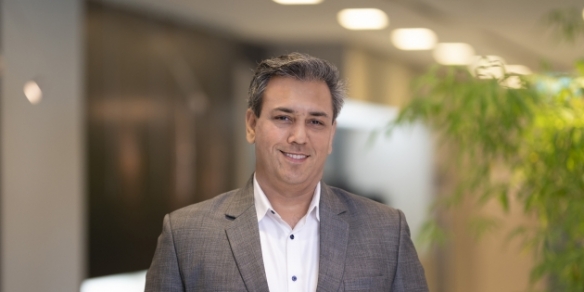MyFinTech Week 2019: Taking the B40 to greater heights
By Sharmila Ganapathy July 3, 2019
- Greater understanding of B40 needs by winning startups
- Remaining startups will continue to be provided access to expertise

TRADITIONALLY, technology startups are all about making profit. However, an initiative by Financial Innovation Lab Malaysia, with the support of the Malaysia Digital Economy Corporation (MDEC), is proving that profit with purpose is the way forward.
Financial Innovation Lab Malaysia, which is funded by the MetLife Foundation, initiated the Malaysia B40 Challenge. The idea was to find solutions that could drive the usage of financial services by lower- and middle-income customers in Malaysia (or the B40 population), beyond merely granting them access to bank accounts.
Financial Innovation Lab in Malaysia is in collaboration with the United Nations Capital Development Fund (UNCDF), Bank Negara Malaysia and MDEC. The B40 Challenge is the first major initiative by the Financial Innovation Lab created by UNCDF, based at MDEC’s fintech hub The Orbit, located in Bangsar South.
The Challenge saw 18 fintech companies come together in its inaugural cohort to provide fintech solutions for the B40 group in Malaysia, where the companies went through a series of bootcamps to refine their business models and products.
Of the eighteen, five companies were selected to pitch their ideas to a panel of global finance and technology experts at a Demo Day during the recent MyFinTech Week.
Three of the six were then selected to continue receiving support from the Financial Innovation Lab, up to December 2020.
The three Malaysian companies are SenangNVS Sdn Bhd, SaphX Technologies Sdn Bhd and GoGet. Digital News Asia spoke to two of the winning companies, as well as to UNCDF for insights into the programme and what lies ahead.
Senang offers business insurance customised for micro-enterprises, so businsesse can buy, manage and claim insurance using their mobile phones. Senang works with insurance providers to underwrite and co-create products.
GoGet is an on demand flexible work app. This app allows freelance workers to earn, while helping micro to large business owners scale operations without full time costs. These freelance workers have access to a range of financial services; they can track earnings, automate savings, buy on-demand insurance, and purchase equipment through installment plans.
The third company is SaphX Technologies Sdn Bhd, which builds data-driven solutions to improve accessibility to financial services. They have built a savings app called Pod, a “digital piggy bank” to help young people save money for specific goals, with a bank managing the trust account.
They have also partnered with merchants and convenience stores, which allows users to save money by rounding up their purchases and saving loose change with Pod.
Zeroing in on B40 needs
Sharian Raj, co-founder and chief executive officer of Senang says that the company was founded in August 2018 and went live in January 2019. When asked what learnings he had obtained from the programme, he cited improving their human-centred design thinking skills as a key takeaway.
“We went to pasar malams, and mom and pop shops in Shah Alam to speak to the B40 on the ground. We learned that they prefer cash payments, monthly or daily insurance policies and simple descriptions of products,” he says.
The 28-year old adds that he also learned to refine his pitch deck and business model from attending Bootcamp 3 of the challenge, which involved the top six companies. The companies were also provided access to as many as 50 mentors from different industry verticals, which greatly helped, he says.
Going forward, he says the plan for Senang is to execute their planned projects for the B40, and to ensure that the business is profitable and scalable, both nationwide and regionally.
“We will continue to focus on micro-enterprises, and plan to deepen our social impact by providing business training skills for micro-enterprises,” he adds.
Francesca Chia, co-founder and chief executive officer of GoGet, a five-year old fintech startup, highlights that financial inclusion has always been their focus. The company is part of MDEC’s e-rezeki programme and is a Cradle Fund grant recipient.
Among her more memorable experiences with the B40 Challenge was the interaction with various mentors, which allowed her to craft solutions for greater business traction. She also liked the focus and training to really understand the needs of the B40 segment.
In addition, she gained deeper knowledge of gamification technology from the mentors, to help the company build a better product, she says. GoGet also partnered with the two other winners to so that GoGet platform users can purchase insurance plans and use the Pod savings app as well, Francesca adds.
Her mid-term goal for GoGet is to provide benefits and perks for users to get the same benefits that full-time employees do, so that gig economy workers like them are protected. “We are trying to build for the nation and change the game for flexible workers, by providing on-demand benefits,” she adds.
Future plans include the possibility of micro-loans, e-wallets and training via micro-learning within their app to upskill these B40 users and workers.
On a mission to uplift the B40

Commenting on the thinking behind the B40 Challenge, UNCDF regional technical specialist for the Asia Pacific region and head of the Financial Innovation Lab globally Jaspreet Singh (pic, above), tells Digital News Asia that if startups in this area want to be really impactful, they need to think of this as a long-term game.
“What startups have is some degree of nimbleness to be able to adapt themselves to the requirements of the market which is a good thing, but can startups scale on their own? Possibly not. They need to develop the right kind of partnerships and if you want to be successful in achieving the outcomes, we are looking at how can we trigger the usage of the financial health dimension,” he says in an interview prior to the Demo Day.
He adds that they have looked at components of financial health such as planning, saving and borrowing. “What we are interested in is, despite the fact that people have bank accounts, or they have access to financial services, are they actually becoming active users of this services? In a way, that will actually help them change their life.
“Can the tools of digital and technology help them plan better with their income or maybe making better use of their expenses? So I think we’re experimenting on those lines with these segments and the market of Malaysia,” he says of the B40 Challenge.
According to Jaspreet, Financial Innovation Lab received almost 111 applications for the B40 Challenge, of which the 18 were selected and then the five to pitch for the Demo Day. He explains that the top three companies have secured a larger amount of funding and will have a dedicated support team that will guide them well into 2020.
“The other 13 companies will also be supported with a smaller amount of capital but we will continue the engagement with the rest of the 13 from the technical side. We will still provide specialists and experts for whenever they need to address specific challenges,” he says of the remaining 13 companies.
In a statement by UNCDF on the Demo Day, Jaspreet was quoted saying the following: “We’re excited to see how the products we’re piloting as a part of this Challenge will help Malaysia’s low- to middle- income people improve their financial health. But there are other challenges to be met.
“We are excited to announce that we will be partnering with the ‘United Nations Secretary-Generals’ Task Force on Digital Financing of the SDGs’ to design challenges on their areas of interest, for instance, decent work and economic growth,” he said.
Related Stories :


